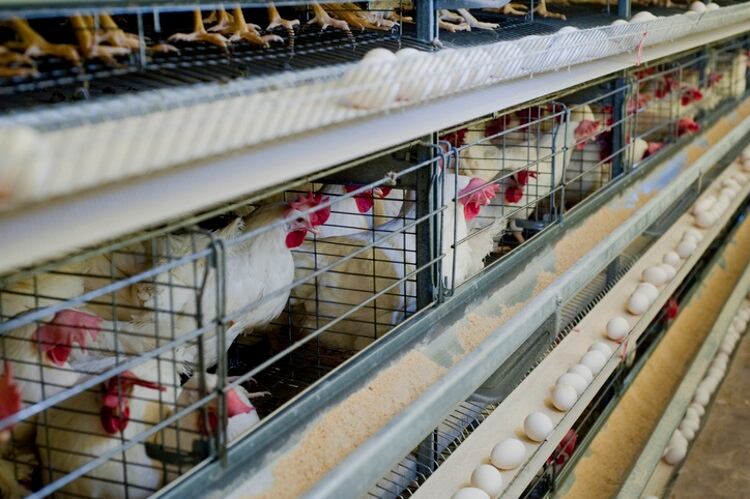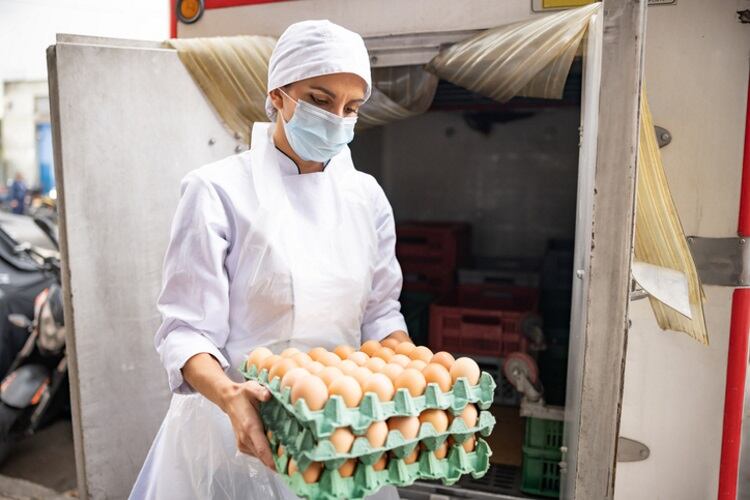The New York-headquartered coalition of 95 animal protection organisations works to end the abuse of chickens in more than 70 countries.
Its 2023 Report ranks 49 global manufacturers, from Barilla (leader) to Divella (last place).
It hails companies like Bridor (7), General Mills (24), Nestlé (26) and Mondelez International (34) for making ‘excellent progress’ towards their cage-free goals.
Others, however, have neglected to report on their progress, allegedly indicating slow headway or possibly even a total failure to transition to the more humane practice.
The Report calls on these companies to publicly disclose their global cage-free egg status, proving that ‘when they commit, they mean it’.
“The Global Manufacturers Report ranks the companies leading the way by publicly reporting on their global cage-free egg progress and those which are underperforming by failing to be transparent about animal cruelty in their supply chains,” said Ben Gardner, OWA’s global corporate campaigns coordinator.
“Customers and stakeholders deserve to know which companies are building trust and improving the lives of egg-laying hens worldwide by following through on their commitments and which are not.”
End the cruelty

The cage-free practice is being driven by consumer demand for better welfare standards.
Cages subject egg-laying hens to a level of cruelty that consumers are increasingly refusing to support. In fact, over 6 billion hens exist in battery cages in overcrowded, dusty barns. As many as 10 are forced to live in a space the size of a cabinet drawer, leaving space no bigger than the surface of an iPad for each hen, preventing them to stretch their wings, contends the Report.
Caged systems promote osteoporosis, reproductive disease and other diseases in egg-laying hens. They also promote fear and aggression.
By contrast, cage-free hens live in open indoor enclosures, where they have access to enough space to practice their natural instincts to stretch their wings, perch, nest, and dust-bathe.
The power of food producers

According to the OWA, the manufacturing sector is crucial in the progress of animal welfare.
To-date, more than 2,400 forward-thinking companies, including 146 of the largest food producers have made a commitment to eliminate the worst forms of confinement from their supply chains.
The majority of these companies have completely fulfilled – or are proactively reporting their progress towards their promise. However, a handful are reneging on their promises to customers and animals alike.
According to the report, 16 trailblazers – including Barilla (1), Lindt & Sprungli (4) and Danone (6) – are already exclusively sourcing cage-free eggs.
“Animal welfare is one of our ESG priorities since 2010 and eggs sourcing chain is the most important for us,” said Leonardo Mirone, sustainable sourcing coordination for Barilla.
“We are very proud to have reached this great result so early also with the support of our suppliers.”
Manufacturers like Kraft-Heinz (19), McCain (22), Hershey (23), General Mills (24) and Unilever (25) are still working with their suppliers to source 100% cage-free eggs. More importantly, they’re being transparent through consistent progress reports and updates.
Some manufacturers, like Grupo Bimbo (40), report progress in a portion of their operating regions, while neglecting other parts of the world.
The full reporting approach is now the industry standard and demonstrates that animal welfare is an integral part of corporate social responsibility.
The OWA’s Global Manufacturers Report also reveals those that are falling behind, among them Pierre Herme (41), PepsiCo (46), Kellogg Company (47) and Cerealto Siro (48).
An addendum in the Report notes the OWA has had discussions with these companies and expects progress to be publicly reported within the next six months.
Get involved
The Report calls on consumers to hold companies accountable for their commitments to animal welfare.
“Consumers can call on corporations to free hens from one of the cruellest forms of confinement. There’s a paradigm shift unfolding, and cages are soon to be part of the past. It’s time to move on. Join us in urging companies to follow through on their commitments to end the worst abuses animals face in our food system,” write the authors.
Every unfilled pledge means continued suffering for countless chickens. And that cruelty cannot continue.
Founded in 2016 by The Humane League, the Open Wing Alliance is a coalition of 95 animal protection organisations in 70+ countries, trailblazing farm animal welfare in nearly every primary market globally. Through shared knowledge, resources and person power, the OWA is united around their goal to end the abuse of chickens worldwide.





